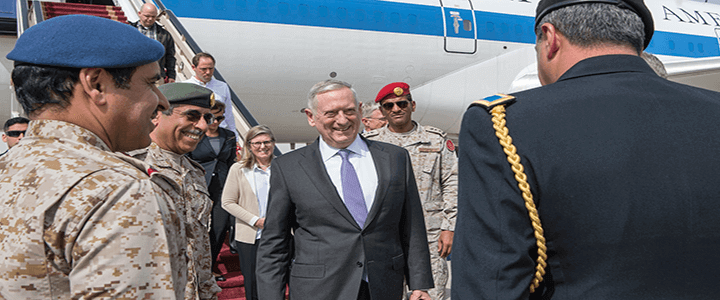ISIS militants proved Friday they are great at grabbing headlines, but haven’t a clue when it comes to operating within a wider strategic framework. Friday’s attack on a Sufi mosque in Egypt’s Sinai peninsula, which killed 305 civilians, including 27 children, and wounded another 128, is a case in point. The attack was as spectacular as it was horrific.
But if it was intended to advance the ISIS cause in Egypt, the timing couldn’t have been worse for ISIS. First and foremost, it has focused the attention of Egypt’s government on the ISIS threat. Gen. Tawhed Tawfik, who is leading the Egyptian delegation to the first summit meeting of the Islamic Military Counterterrorism Alliance, put the threat in blunt terms: “Terrorist organisations have moved on from having political, social or economic goals to seeking the elimination of any trace of the nation state.”
A renewed sense of purpose for the Alliance
The second reason the attack was so ill-timed is that came just two days before that summit convened in Riyadh, Saudi Arabia. The brazen ISIS attack has unwittingly breathed new life into the Saudi-led alliance.
Then-Deputy Crown Prince and Defense Minister Mohammed bin Salman of Saudi Arabia announced the Islamic Military Counterterrorism Alliance in December 2015. The initial group of 34 member nations issued a joint statement affirming their commitment to combatting terrorism throughout the Islamic world.
“Since terrorism and its atrocities – which spread Shari’a-forbidden corruption and destruction in the world – constitute a serious violation of human dignity and rights, especially the right to life and the right to security, and subject the interests of countries and communities to danger and threaten their stability,” the statement said, “it should be fought by all means and collaboration should be made to eliminate it because this is cooperation in righteousness and piety.”
The coalition has since grown to 41 member nations. But it hasn’t really done anything since its creation. And the fact that these member nations are all Sunni-majority countries has led to charges that the coalition is more interested in cementing the Sunni branch of Islam’s dominance over the region than actually combatting terrorism. As one German foreign policy expert told Deutsche Welle, “This alliance is a clear signal to the Arab-Islamic world that Saudi Arabia still wants to set the main agenda in regional policy and, of course, another instrument of containing Iran.”
Since when is isolating Iran a bad thing?
Anything the Arab world does to further isolate Iran is a good thing for the United States. But benefitting Saudi Arabia by hurting Iran is likely not the whole story. 32-year-old Prince Salman, now firmly in control of the Saudi government, is eager to portray himself as a modernist and reformer. Leading the anti-terror coalition is one way to accomplish this.
His father, King Salman, only ascended to the throne in January 2015, and at nearly 82 years old, will not rule for much longer. He was appointed deputy crown prince shortly after his father became king, and replaced his half-brother Muhammad bin Nayef as crown prince in June of this year, making him the heir-apparent. Earlier this month, solidifying his grasp, Prince Salman ordered the arrest of 40 other princes and high-ranking government officials on charges of corruption.
His anti-terror coalition may prove to be little more than window dressing designed to make the west more accepting of some of Saudi Arabia’s more questionable human rights practices. After all, for all Prince Salman’s media savvy, it’s not like Saudi Arabia is in any danger of instituting a republican government. But the prince is convincing some hard-to-convince people. Thomas Friedman opened his Sunday New York Times article, “Saudi Arabia’s Arab Spring, at Last,” with this sentence: “I never thought I’d live long enough to write this sentence: The most significant reform process underway anywhere in the Middle East today is in Saudi Arabia.”
Prince Salman, or MBS as he’s almost universally known, might just be the Arab reformer the western world has been waiting for. Leading the Islamic Military Counterterrorism Alliance in taking concrete steps to combat Islamist extremism — Sunni and Shia — would be an excellent way to start proving it.




